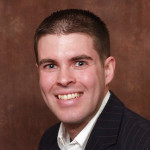 “A business owner, a school superintendent and a lawyer walk into a bar ….” Sounds like the beginning of a lame joke, right? Well, it was definitely a joke — even worse than the kind of joke that might illicit an eye roll from spouse or friends. Ninety-two years ago this week, one of the greatest legal farces in history commenced in the small town of Dayton, Tenn. It all started at a drug store lunch counter — as many things do in a small town — when a manager at a local company met with the school superintendent and a local attorney. The story goes that the businessman, George Rappleyea of the Cumberland Coal and Iron Company, hatched a plan designed to “bring much needed publicity” to Dayton. So, you must wondering, what kind of publicity campaign did they devise? They, of course, decided to bring suit against a 24-year-old substitute teacher named John T. Scopes, for unwittingly teaching evolution in science class.
“A business owner, a school superintendent and a lawyer walk into a bar ….” Sounds like the beginning of a lame joke, right? Well, it was definitely a joke — even worse than the kind of joke that might illicit an eye roll from spouse or friends. Ninety-two years ago this week, one of the greatest legal farces in history commenced in the small town of Dayton, Tenn. It all started at a drug store lunch counter — as many things do in a small town — when a manager at a local company met with the school superintendent and a local attorney. The story goes that the businessman, George Rappleyea of the Cumberland Coal and Iron Company, hatched a plan designed to “bring much needed publicity” to Dayton. So, you must wondering, what kind of publicity campaign did they devise? They, of course, decided to bring suit against a 24-year-old substitute teacher named John T. Scopes, for unwittingly teaching evolution in science class.
Pit fundamentalist Christians against modernist ones. Place science and the Bible itself on trial. Drive a wedge between conservative people of faith and the scientific community. Create a cloud of doubt and fear about scientific claims, and instead of encouraging people to study and wrestle with the claims themselves, encourage a spirit of bitter resentment and dismissal. Create a media driven campaign to discredit scientists, thereby discrediting science in general. Make sure all this is started and largely funded by a leader in the fossil fuels industry. Make sure the ACLU (among others) is on the side of the liberal, anti-God movement.
Now, instead of the Scopes Monkey Trial, think global warming and climate change. It’s the same playbook, folks. As people of faith we should be able to recognize and name a farce when we see one, and stand up for truth in the face of propaganda meant to drive a wedge between good people of faith. Care for creation may well be the most pressing ethical and theological issue of our time, and the church cannot allow disinformation and indoctrination to rule the day.
We live in a time of seemingly unprecedented political division, and many organizations and movements decry the changes in our culture, and the “progress” we are making. Harry Emerson Fosdick said in his famous sermon, Shall the Fundamentalists Win, “The new knowledge and the old faith cannot be left antagonistic or even disparate, as though a man on Saturday could use one set of regulative ideas for his life and on Sunday could change gears to another altogether. We must be able to think our modern life clear through in Christian terms, and to do that we also must be able to think our Christian faith clear through in modern terms.” Think that sounds tough in modern times? How about postmodern times?
Many of the same challenges that existed in the last century persist today. Pastors in churches across the country face the challenge of placing faith in the contemporary context — a context marked by sweeping and rapid change. One peer-reviewed article I recently read cites that the only cross-segment of American society that has grown in its distrust of science since the late 1970s is Protestant Evangelicals. Let that sink in for a minute. Think about how that fact impacts our political climate. Think about how that fact impacts our planetary climate. Simply astounding.
Interesting, is it not, that the rise of evangelical distrust in science itself coincides with the rise of the so-called “Moral Majority” and the culture wars of the 1980s and ’90s?
It’s been nearly a hundred years since The State of Tennessee v. John Thomas Scopes, but for many, science (or the Bible — depending on your perspective) remain on trial. As Christians, we (perhaps) still struggle to speak of faith and science in ways that don’t alienate or divide people in our churches. In 1925, the conversation was about the future of education and about the nature of religion, focusing largely on the history of humanity. Today the conversation between science and faith revolves around the future of the planet, the ethics of human genetic engineering, human sexuality, and the nature of religion itself, focusing largely on the future of humanity.
The conversations between science and faith will never go away. As scientific knowledge exponentially proliferates at unprecedented rates, those of us in faith communities need to strongly consider how we are called to respond to the discoveries and claims of the scientific community. I fear many are still living in 1925.
Related story: Millennials not OK with conventional science vs. religion debates, experts say
Related opinion: Genius hesitates, both in science and religion | Scott Dickison
